Politics
French parliament votes to oust prime minister, deepening political crisis
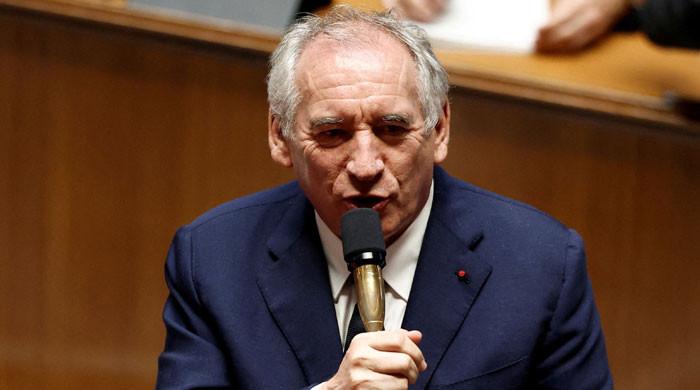
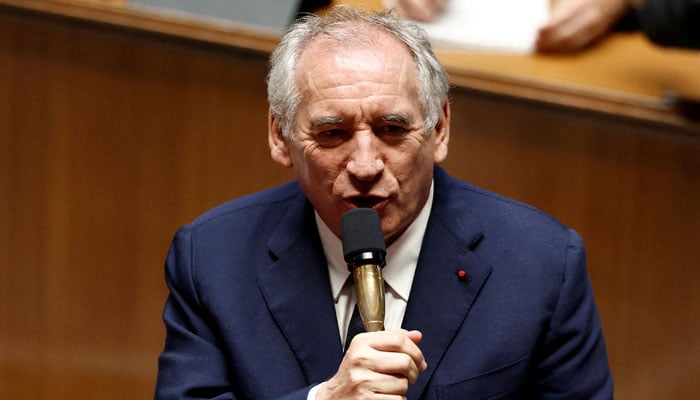
- Bayrou loses confidence vote in parliament.
- His defeat deepens political crisis in France.
- France is under pressure to fix its finances.
France’s parliament voted on Monday to bring down the government over its plans to tame the ballooning national debt, deepening a political crisis and handing President Emmanuel Macron the task of finding a fifth prime minister in less than two years.
Francois Bayrou, 74, took office as prime minister only nine months ago. He must now tender his resignation, leaving Macron to face a narrowing set of options, with financial markets signalling worry at France’s political and fiscal crisis.
Bayrou had called the vote unexpectedly to try to win parliamentary support for his strategy to lower a deficit that stands at nearly double the European Union’s 3% ceiling and to start tackling a debt pile equivalent to 114% of GDP.
But opposition parties were in little mood to rally behind his planned savings of 44 billion euros ($51.51 billion) in next year’s budget, with an election for Macron’s successor looming in 2027.
Macron could now nominate a politician from his own centrist minority ruling group or from the ranks of conservatives as the next premier, but that would mean doubling down on a strategy that has failed to yield a stable alliance.
He could tack to the left and nominate a moderate socialist, or choose a technocrat.
No scenario would be likely to hand the next government a parliamentary majority. It was inevitable that the need to form a new government would result in a dilution of the deficit reduction plan, Finance Minister Eric Lombard said before the vote.
Macron may eventually decide the only path out of the crisis lies in calling a snap election, but he has so far resisted calls from the far-right National Rally and hard-left France Unbowed to dissolve parliament a second time.
Fiscal mess
The next government’s most pressing task will be to pass a budget, the same challenge Bayrou faced when he took office.
“You have the power to bring down the government, but you do not have the power to erase reality,” Bayrou told lawmakers before the confidence vote.
“Reality will remain relentless: expenses will continue to rise, and the burden of debt, already unbearable, will grow heavier and more costly,” he said.
France’s “very survival is at stake,” he said.
France’s EU peers will be watching closely.
France holds the highest deficit as a percentage of GDP in the euro zone – the bloc using the EU’s single currency. It pays more to service its debt than Spain and spreads against benchmark German 10-year bonds are at their highest level in four months.
Fitch, often seen as a first mover among rating agencies, reviews its AA- rating with a negative outlook on September 12. Moody’s and S&P Global, which have equivalent ratings, follow in October and November.
A downgrade would hamper France’s ability to raise money at low interest rates from investors, potentially deepening its debt problems.
A lengthy period of political and fiscal uncertainty risks undermining Macron’s influence in Europe at a time when the United States is talking tough on trade and security, and war is raging in Ukraine on Europe’s eastern flank.
Macron and political figures from centrist and conservative parties deem that a snap election would not solve the crisis and that talks with the Socialists should be pursued, two sources familiar with Macron’s thinking said.
The Socialists have offered a counter-budget that would impose a tax of at least 2% on personal wealth greater than 100 million euros and generate savings of 22 billion euros, a proposal that would be tough to marry with the pro-business reform agenda of Macron’s presidency.
Discontent may also start brewing on the streets. A grassroots protest movement called “Bloquons Tout” (“Let’s Block Everything”) is calling for nationwide disruption on Wednesday. Trade unions are plotting walkouts the week after.
“France is done,” said Mohamed, 80, a retired hospital worker who sells produce on the Aligre market in Paris.
Politics
Peace hopes dented as Russia says Ukraine tried to attack Putin residence
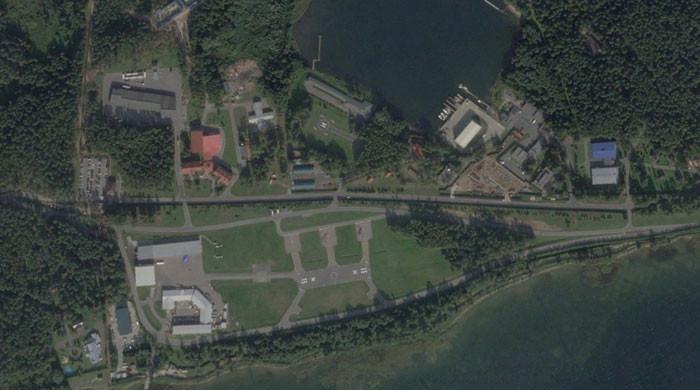
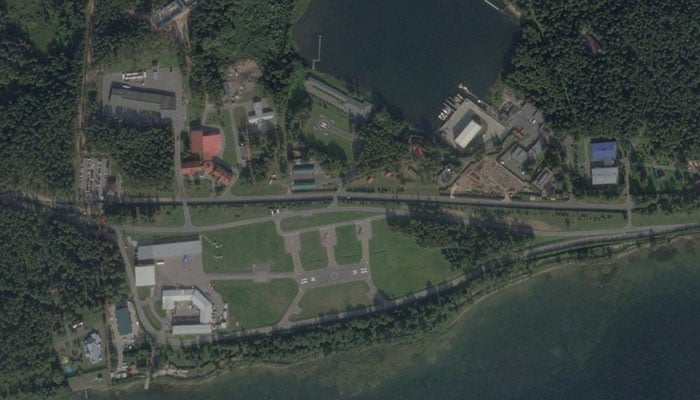
- Trump met Zelenskiy in Florida on Sunday.
- Ukraine says territorial issue remains unresolved.
- Ukraine denies accusation as fabrication to block peace.
MOSCOW/KYIV: Russia accused Ukraine on Monday of trying to attack President Vladimir Putin’s residence in northern Russia, although it provided no evidence to back up an assertion that Kyiv dismissed as baseless and designed to undermine peace negotiations.
The angry exchanges, including a statement by Russia that it was reviewing its stance in negotiations in response to the attack, dealt a new blow to prospects for peace in Ukraine.
On Sunday, US President Donald Trump met President Volodymyr Zelenskiy in Florida and said they were “getting a lot closer, maybe very close” to an agreement to end the war, although “thorny” territorial issues remained.
Putin also struck a defiant tone on Monday, telling his army to press on with a campaign to take full control of Ukraine’s Zaporizhzhia region, and the Kremlin repeated demands for Kyiv to pull its forces out of the last part of the Donbas area that they still hold in eastern Ukraine.
Putin told Trump by phone that Russia, which invaded Ukraine in February 2022, was reviewing its stance following the reported drone attack, an aide said.
Lavrov accuses Ukraine, Zelenskiy issues denial
Foreign Minister Sergei Lavrov said Ukraine had tried to attack Putin’s residence in the Novgorod region west of Moscow on December 28-29 with 91 long-range drones which were all destroyed by Russian air defences. No one was injured and there was no damage, he said in comments reported by Russian media.
“Such reckless actions will not go unanswered,” the veteran foreign minister said, describing the attack as “state terrorism” and adding that targets had already been selected for retaliatory strikes by Russia’s armed forces.
Lavrov appeared in televised remarks not to have offered any evidence for his assertions. It was not clear where Putin was at the time.
Lavrov noted that the attack took place during negotiations about a possible peace deal, and said Russia would review its negotiating stance but not quit the negotiations.
Denying Ukraine had planned such an attack, Zelenskiy accused Moscow of preparing the ground to strike government buildings in Kyiv, saying Russia wanted to undermine progress at US-Ukrainian talks on ending the war.
“Another round of lies from the Russian Federation,” Zelenskiy told reporters via WhatsApp.
“It is clear that we had a meeting with Trump yesterday, and it is clear that for the Russians, if there is no scandal between us and America, and we are making progress – for them it is a failure, because they do not want to end this war.”
He added: “I am sure they are simply preparing the ground for strikes, probably on the capital, probably on government buildings.”
Ukrainian Foreign Minister Andrii Sybiha said on X the attack was a fabrication intended to create a pretext for more Russian attacks on Ukraine and to undermine the peace process. He urged world leaders to condemn Russia over its accusations.
Territorial issues unresolved
Zelenskiy said a bilateral agreement had been outlined with Trump on security guarantees for Kyiv on Sunday, although the US president said they were only 95% ready and Zelenskiy said on Monday that he had sought a 50-year security deal.
Trump also said he expected European countries to “take over a big part” of security efforts with US backing. Agreement on such moves would be complicated, as Russia has said any foreign troop deployment in Ukraine would be unacceptable.
Zelenskiy said on Monday two main issues in a 20-point peace proposal remained to be resolved – control of Ukraine’s Zaporizhzhia nuclear power station, which is in Russian hands, and the fate of the Donbas area.
Russia controls about a fifth of Ukraine, including the Crimean peninsula, which it annexed in 2014.
It claims Donbas – comprising the Donetsk and Luhansk regions – as well as the Zaporizhzhia and Kherson regions, although they are all internationally recognised as Ukraine’s sovereign territory.
Russia wants Kyiv to withdraw troops from parts of the Donetsk region it has failed to occupy. Kyiv wants fighting halted along current front lines, and Washington has proposed a free economic zone if Ukraine pulls troops back.
Underlining Russia’s intention of standing firm on its territorial ambitions, Putin said on Monday his generals should push on with efforts to secure all of Zaporizhzhia region – of which Moscow already controls around 75%.
Colonel-General Mikhail Teplinsky, commander of Russia’s Dnieper military grouping, told Putin Russian forces were 15 km (9.3 miles) from its biggest city, also called Zaporizhzhia.
“In the near future, it is necessary to continue the offensive, together with the East grouping to liberate Zaporizhzhia,” Putin responded.
Politics
US pledges $2bn for UN aid, with ‘adapt, shrink or die’ warning


Washington on Monday pledged an initial $2 billion for United Nations humanitarian aid in 2026, far less than it has provided in recent years, warning individual UN agencies to “adapt, shrink or die”.
With its pledge, announced at the US mission in Geneva alongside the United Nations’ aid chief Tom Fletcher, the United States is pursuing a dramatic overhaul of how it funds UN humanitarian work.
Instead of handing funds to individual agencies, the United States will funnel its contributions through the UN aid agency OCHA, headed by Fletcher, which earlier this year launched a so-called Humanitarian Reset to improve efficiency and accountability.
The US funds will then be distributed to more than a dozen selected countries, including the Democratic Republic of Congo, Myanmar and Sudan.
“It is an initial anchor commitment,” Jeremy Lewin, the senior US official for foreign assistance, humanitarian affairs and religious freedom, told reporters.
“There are other countries that we will add, as we continue to get more funding into this mechanism.”
He challenged other countries to match or beat US funding for UN aid.
“This new model will better share the burden of UN humanitarian work with other developed countries and will require the UN to cut bloat, remove duplication, and commit to powerful new impact, accountability and oversight mechanisms,” US Secretary of State Marco Rubio said on X.
According to UN data, the United States remained the top humanitarian aid donor in the world in 2025, but that amount fell significantly to $2.7 billion, down from around $11 billion in 2023 and 2024, and from over $14 billion in 2022.
Other key donor countries have also been tightening their belts, triggering major upheaval in the global aid sector. “Individual UN agencies will need to adapt, shrink, or die,” a State Department statement said.
Hard priority choices
Fletcher, who is British, said the US pledge was an “extraordinary” commitment.
“The US has long been the world´s humanitarian superpower,” he said in a statement.
“Hundreds of millions of people are alive today because of American generosity — and many millions more will survive in 2026 because of this landmark investment in humanity.”
Fletcher said reform of the humanitarian system was in the pipeline, and US taxpayers would be able to see how their money was delivering life-saving impacts.
“The US is also placing a significant and encouraging vote of trust and confidence in the Humanitarian Reset, through which we are making humanitarian action faster, smarter and closer to the people on the front lines of emergencies,” he said.
“We’re cutting red tape, eliminating duplication and prioritising hard.”
When Fletcher launched the UN’s annual Global Humanitarian Appeal for 2026 earlier this month, he requested $23 billion to provide assistance to 87 million of the world’s neediest people, with a heavy focus on dire conflicts like those in Gaza, Ukraine, Sudan, Haiti and Myanmar.
The amount and number of people covered by the appeal has been dramatically reduced over recent years, as the UN strives to adapt to a new reality after President Donald Trump slashed US foreign aid spending.
The United Nations has stressed that the smaller appeal does not mean needs have shrunk.
It estimates that some 240 million people — in conflict zones, suffering from epidemics, or victims of natural disasters and climate change — are in need of emergency aid.
In 2025, the UN’s appeal for more than $45 billion was only funded to the $12 billion mark, the lowest in a decade.
That only allowed it to help 98 million people, 25 million fewer than the year before.
Politics
Trump-Zelensky talks yield no progress on Ukraine-Russia territorial issues
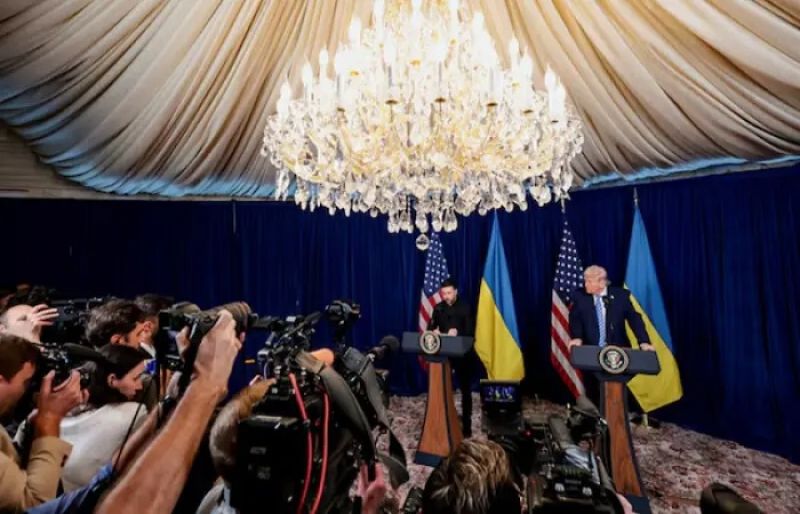

Russia and Ukraine on Monday remained far apart on territorial issues that are blocking a peace deal, despite progress on security guarantees for Kyiv at talks between US President Donald Trump and Ukrainian leader Volodymyr Zelensky.
Trump said after his talks with the Ukrainian president on Sunday that they were “getting a lot closer, maybe very close” to an agreement to end Russia’s war in Ukraine, but that “thorny issues” were still there.
Zelensky said two main issues outlined in a 20-point peace proposal remained to be resolved – control of Ukraine’s Zaporizhzhia nuclear power station, which is in Russian hands, and the fate of the Donbas area of eastern Ukraine.
“Two questions remain: the station – how will the station operate? – and the territory,” Zelensky told reporters on Monday.
Underlining how far apart Kyiv and Moscow are on territory, Kremlin spokesman Dmitry Peskov said Ukraine must withdraw its troops from the small part of Donbas that it still controls, and that Kyiv would lose more land if it did not agree to a deal.
“We are talking about the withdrawal of the regime’s armed forces from the Donbas,” Peskov said.
He said a call was planned soon between Trump and Russian President Vladimir Putin, but did not say when.
Security Guarantees
Trump’s decision to hold talks with Zelensky in Florida on Sunday had widely raised hopes of at least some progress being made towards ending what has become Europe’s deadliest conflict since World War Two.
Russia controls about a fifth of Ukraine, including the Crimean peninsula, which it annexed in 2014. It claims Donbas – comprising the Donetsk and Luhansk regions – as well as the Zaporizhzhia and Kherson regions, although they are all internationally recognised as Ukraine’s sovereign territory.
Russia wants Kyiv to withdraw troops from parts of the Donetsk region it has failed to occupy in four years of war since its invasion of Ukraine in February 2022. Kyiv wants fighting halted along the current front lines, and Washington has proposed a free economic zone if Ukraine pulls troops back.
“There is no detailed concept for a free economic zone yet,” Zelensky said.
Russia has rejected the idea of a ceasefire to allow a referendum to be held on any territorial concessions by Ukraine.
One sign of progress on Sunday came when Zelensky said a bilateral agreement had been reached on security guarantees for Kyiv, although Trump said they were only 95pc ready.
“I told (Trump) that we have been at war for almost 15 years, and would very much like the guarantees to be for longer,” Zelensky said, adding that he had asked Trump to consider a security deal for up to 50 years.
Trump said on Sunday he expected European countries to “take over a big part” of that effort with US backing. Agreement on such moves could be complicated, as Russia has said any foreign troop deployment in Ukraine would be unacceptable.
French President Emmanuel Macron said progress was being made on security guarantees, and countries in the so-called “Coalition of the Willing” would meet in Paris in early January to “finalise concrete contributions”.
Trust between Russia and Ukraine is low.
Despite the recent peace overtures and some exchanges of prisoners of war, mistrust runs deep between Ukraine and Russia.
Russia launched a heavy attack on Ukraine before the talks in Florida began, and has stepped up attacks on Ukraine’s energy facilities as winter approached. Large parts of the capital Kyiv were without power on Monday after the strike, as temperatures were below freezing.
Trump repeated on Sunday, after his call with Putin, that he believed the Russian leader wants the war to end.
“In my opinion, (Putin’s) actions do not coincide with the seemingly peaceful rhetoric he uses in his dialogue with the US president,” Zelensky said, questioning Putin’s commitment to peace.
Zelensky said he was open to any format of communication with Russia, and a meeting would be possible after Trump and European leaders agree on the framework for peace. Peskov said no call between Putin and Zelensky was being discussed.
Putin has said Russia will achieve its aims in Ukraine by force if Kyiv does not want to resolve the conflict diplomatically – making clear it must accept Moscow’s demands.
Several Ukrainians who spoke to Reuters in Kyiv on Monday voiced scepticism about prospects for a lasting peace.
“Putin doesn’t need territory; he doesn’t need Donbas — he wants to destroy the Ukrainians. He destroys us as a nation,” said Nadiia Yevtushenko, a 57-year-old Kyiv resident.
-
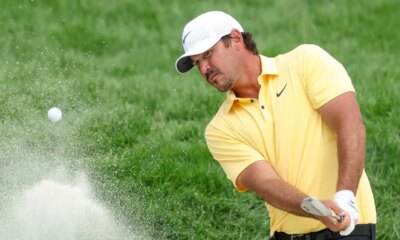
 Sports3 days ago
Sports3 days agoBrooks Koepka should face penalty if he rejoins PGA Tour, golf pundit says
-

 Sports1 week ago
Sports1 week agoPatriots vs. Ravens (Dec 21, 2025) Live Score – ESPN
-
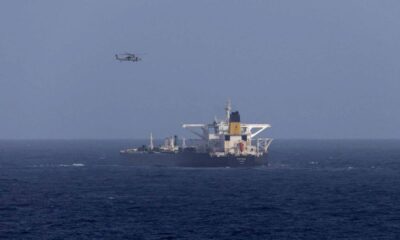
 Politics1 week ago
Politics1 week agoUS intercepts oil tanker off Venezuelan coast, Reports
-
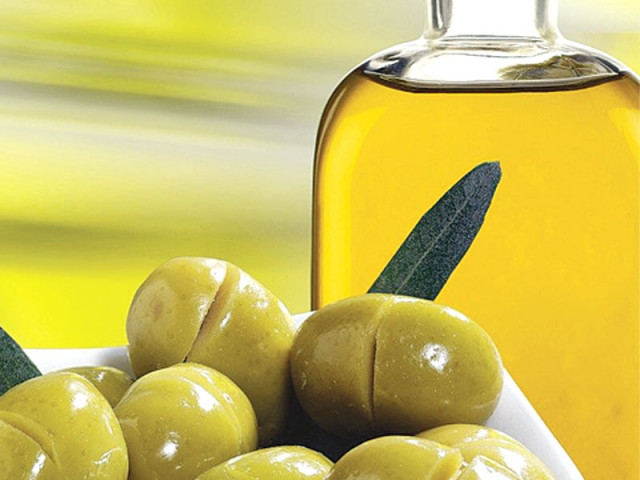
 Business3 days ago
Business3 days agoGovt registers 144olive startups | The Express Tribune
-
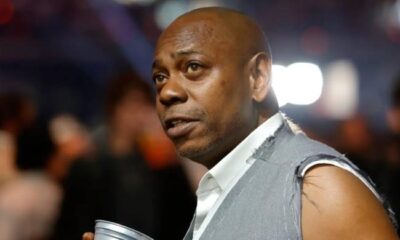
 Entertainment1 week ago
Entertainment1 week agoDave Chappelle drops Netflix special, ‘Dave Chappelle: The Unstoppable…’
-
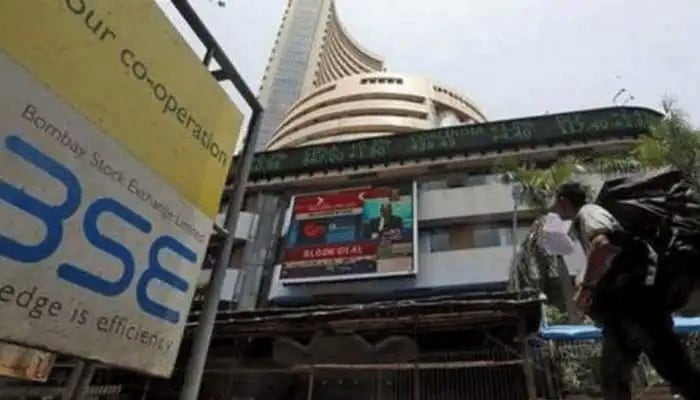
 Business1 week ago
Business1 week agoNeptune Logitek Shares List At 26% Discount, IPO Investors Suffer Nearly Rs 30,000 Losses
-

 Sports1 week ago
Sports1 week agoWATCH: Pakistan’s winning moment as Green Shirts clinch U19 Asia Cup title
-

 Entertainment1 week ago
Entertainment1 week agoPentatonix sings “Christmas Time Is Here”






